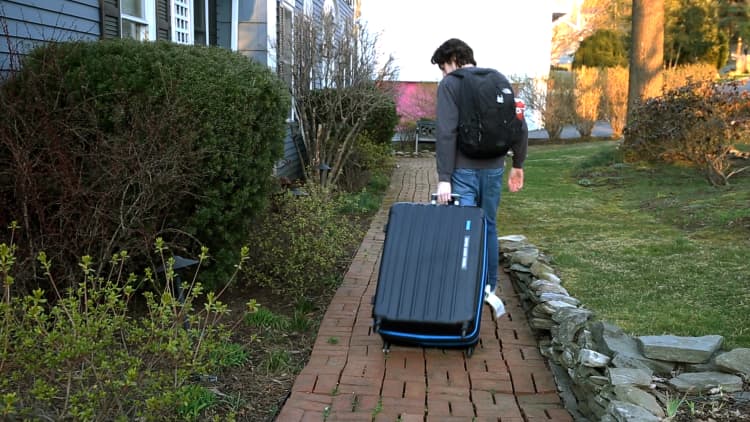While Americans are home, under orders to stay indoors or self-quarantine to slow the outbreak of the COVID-19 coronavirus, they're moving less and sleeping more, according to a new study using data from over 68,000 fitness trackers. The research included Apple Watches, Fitbits and Garmin smartwatches.
The COVID-19 Pulse study, conducted by Evidation Health, found that activity levels in the United States were down 39% on Tuesday, March 24 compared to activity recorded on March 1. In New York City alone, the data shows that physical activity dropped 50% during the week the city ordered residents to stay home.
Time asleep increased by 20% after President Trump declared a national emergency on March 13. Evidation's analysis of the data found that people were sleeping 10% more in every state except Hawaii and Alaska during that time period.
Evidation said people are increasingly willing to contact medical services remotely. Thirty percent of respondents now plan to use telemedicine over a primary care physician or emergency room if they have coronavirus symptoms, up from 19% on March 12.
Results from the survey also showed that 49% of respondents said their anxiety had increased in the past week, up from 29% on March 12. Anxiety was up in every state.
The study was conducted through the company's Achievement app. Nearly 160,000 people participated across all 50 states (though 68,000 had fitness trackers.) The company plans to update its findings on a regular basis.
"We're all staying at home and a lot less active, we're sleeping more, we're snacking more, and we're keeping an eye on our health at home," Evidation Health president Christine Lemke said.
"Mostly, we wanted to see differences in states. We know states are seeing different symptom rates and different disease rates," Lemke said. "We're doing this study to watch the trend over time."
While Evidation's data show that activity is down in every state, the speed of the drop varied by state. "It's not hard to tell the states that put shelter in place ahead of other counties and who might be adhering to them more," Lemke said, adding that physical activity can be used as a way to infer how well people are social distancing.
The study doesn't just rely on data from smartwatches and other wearables. It also includes a detailed survey that includes questions on whether respondents' workplaces have been shut down, where they get their coronavirus news and what respondents are doing in response to the outbreak. The company is surveying the same group of people each week so that the results can be compared to each other.
Evidation Health specializes in observing trends from device data that people choose to share. It partners with companies like Apple, Eli Lilly, and Johnson & Johnson to help big companies conduct studies using fitness tracker data.



